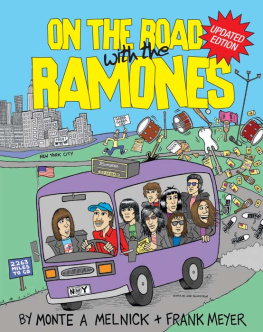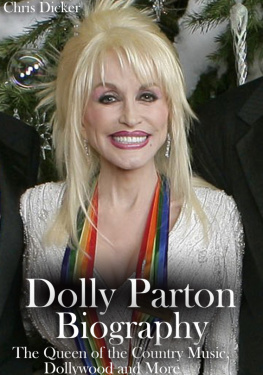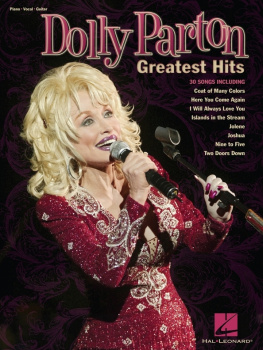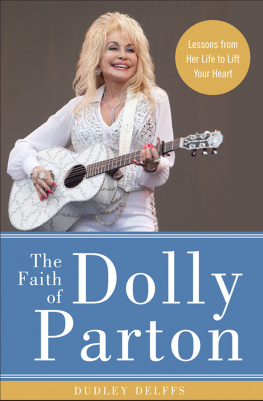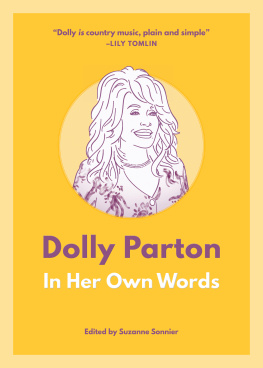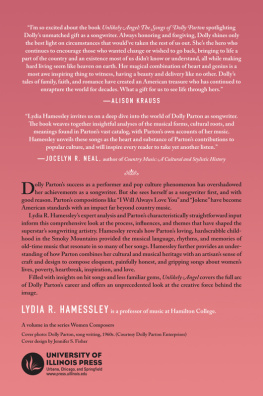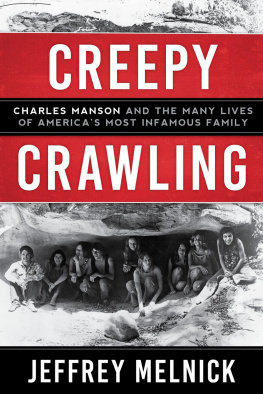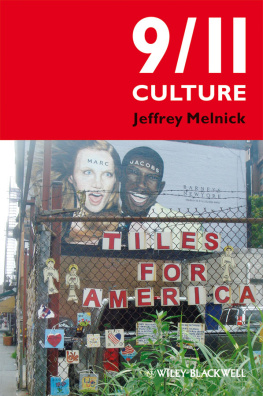AMERICAN MUSIC SERIES
Jessica Hopper and Charles L. Hughes, Series Editors
Bruce Adams, Youre with Stupid: kranky, Chicago, and the Reinvention of Indie Music
Margo Price, Maybe Well Make It
Francesca Royster, Black Country Music: Listening for Revolutions
Lance Scott Walker, DJ Screw: A Life in Slow Revolution
Eddie Huffman, John Prine: In Spite of Himself
David Cantwell, The Running Kind: Listening to Merle Haggard
Stephen Deusner, Where the Devil Dont Stay: Traveling the South with the Drive-By Truckers
Eric Harvey, Who Got the Camera? A History of Rap and Reality
Kristin Hersh, Seeing Sideways: A Memoir of Music and Motherhood
Hannah Ewens, Fangirls: Scenes from Modern Music Culture
Sasha Geffen, Glitter Up the Dark: How Pop Music Broke the Binary
Hanif Abdurraqib, Go Ahead in the Rain: Notes to A Tribe Called Quest
Chris Stamey, A Spy in the House of Loud: New York Songs and Stories
Holly Gleason, editor, Woman Walk the Line: How the Women in Country Music Changed Our Lives
Adam Sobsey, Chrissie Hynde: A Musical Biography
Lloyd Sachs, T Bone Burnett: A Life in Pursuit
Danny Alexander, Real Love, No Drama: The Music of Mary J. Blige
Alina Simone, Madonnaland and Other Detours into Fame and Fandom
Kristin Hersh, Dont Suck, Dont Die: Giving Up Vic Chesnutt
Chris Morris, Los Lobos: Dream in Blue
John T. Davis, The Flatlanders: Now Its Now Again
David Menconi, Ryan Adams: Losering, a Story of Whiskeytown
Don McLeese, Dwight Yoakam: A Thousand Miles from Nowhere
Peter Blackstock and David Menconi, Founding Editors
Ive Had to Think Up a Way to Survive
ON TRAUMA, PERSISTENCE, AND DOLLY PARTON
Lynn Melnick

University of Texas Press
Austin
The names and identifying details of some individuals have been changed to protect their privacy.
Copyright 2022 by Lynn Melnick
All rights reserved
First edition, 2022
Requests for permission to reproduce material from this work should be sent to:
Permissions
University of Texas Press
P.O. Box 7819
Austin, TX 78713-7819
utpress.utexas.edu/rp-form
Library of Congress Cataloging-in-Publication Data
Names: Melnick, Lynn, author.
Title: Ive had to think up a way to survive : on trauma, persistence, and Dolly Parton /Lynn Melnick.
Other titles: I have had to think up a way to survive
Description: First edition. | Austin : University of Texas Press, 2022. |
Series: American music series | Includes bibliographical references.
Identifiers: LCCN 2022000739
ISBN 978-1-4773-2267-3 (cloth)
ISBN 978-1-4773-2599-5 (PDF)
ISBN 978-1-4773-2600-8 (ePub)
Subjects: LCSH: Melnick, Lynn. | Parton, Dolly. | Parton, Dolly. Songs. Selections. | Women poetsBiography. | Women country musiciansBiography.
Classification: LCC PS3563.E4436 Z46 2022 | DDC 811/.54 | [B]dc23/eng/20220128
LC record available at https://lccn.loc.gov/2022000739
doi:10.7560/322673
I think friends can literally save your life.
Dolly Parton
This book is dedicated to my friends.
CONTENTS
INTRODUCTION
Seven Bridges Road
Little Sparrow, 2001, 3:29
THE FIRST TIME I REMEMBER hearing a Dolly Parton song start to finish was in the triage room of a hospital, as I waited to be admitted to a drug rehabilitation program in West Los Angeles. I was fourteen. It was 1988, and Dolly and Kenny Rogers were singing 1983s Islands in the Stream across LAs KOST-FM. I knew her voice, of course. It would have been hard to be anywhere near a radio or television in the last fifty years without getting to know Dollys warm, clarion soprano. But while I grew up on folk songsbasically country for blue statesmusic like Dollys was often scorned in my parents home, and by my friends. My friends and I spent our time chasing down heavy metal bands on the Sunset Strip and would not have given Dolly the time of day. Many people of my generationor at least those born outside the reign of country radiofirst knew of Dolly as a straight-talking goofball on The Tonight Show, a set of giant tits, someone your grandma got a kick out of, someone who, my father would say with derision, was famous for being famous. Meanwhile, Dolly had been churning out hits for decades, possessed of a preternatural talent for writing and for singing authentic emotion into every song. Class and gender stereotypes could not and would not obscure her absolute genius or stop her from going where she wanted to go.
I dont remember my parents in the moment they signed me into rehab, not their probably weary facesyounger than my own nowor much of what they said, only that the high cost of hospitalization was mentioned, and a joke made about hitting the annual insurance deductible in one night. March 3. A date I have marked every year in the thirty-plus years since. As a parent of a teenager myself now, I assume there was significant pain involved, some bewilderment, but also perhaps some acknowledgment of this predictable next step in the falling-apart sequence Id been slowly enacting since I was raped by a teenage boy on overgrown 1970s carpeting before Id turned ten years old. Now halfway through ninth grade, I had already been expelled from school twice; reckless behavior, followed by variously successful attempts to cover it up, was how I spent my free time while other kids studied or kissed or participated in team sports.
I welcomed the stay at Glen Recovery Center. If I couldnt just be given an entirely new self, at least I wanted to make it clear to the world that the one I inhabited was wrecked. Being in rehab seemed like a rubber stamp to that effect. Less fond of cocaine and whiskey than of the exhilaration of forgetting, I craved the fresh environment. My parents filled out intake forms, and I was asked to create a list of people I approved to visit me. I sat with the lined sheet of paper on my lap even though I knew I didnt want to see anyone. Outside, on Pico Boulevard, the Santa Ana winds blew through the tops of the palm trees visible from the windows of the triage room. I could hear the traffic flow east toward the tall vacant buildings of Downtown after dark and west toward Twentieth CenturyFox Studios and eventually the Pacific Ocean. It was a relief to abandon whatever promise Id held as a curious, shy girl in my brothers hand-me-down Sears dungarees and a cherished Strawberry Shortcake turtleneck shirt, the outfit Id worn to school on picture day a couple months before my body was violated on that deep pile of beige shag carpet.
Id worked hard since then to convince the outside world to join me in giving up on my potential. But Dollys voice from the hospitals ceiling speakers held a different kind of promise than that which Id failed to meet. It was a release, a renewal, euphoric. When I heard Dollys voice over the four-plus minutes of Islands in the Stream, I knew I needed to hear it again. Though it would be a few months before I purchased a Greatest Hits cassette tape from the bargain bin at a Thrifty Drugs, the multifaceted clarity of her voice hooked me instantly. I needed to feel that euphoria in my body again. I needed to believe in that bright precision, in an artistry as unstoppable as Dolly herself.


